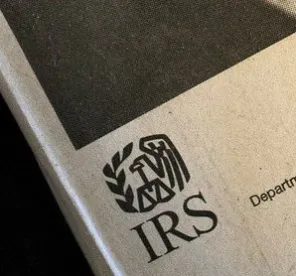Sen. Tammy Baldwin (D-WI) and Rep. Bill Pascrell (D-NJ) recently reintroduced the “Carried Interest Fairness Act of 2019” (the “Act”). The sponsors claim that the Act would “provide for the proper tax treatment of personal service income earned in pass-thru entities” by treating carried interest income received for profitable management of an investment vehicle as ordinary income instead of capital gains. In 2015 and, again, in 2017, Sen. Baldwin and Rep. Sandy Levin (D-MI) introduced earlier versions of the Act. Although enactment is far from certain, the legislation could gain greater traction ahead of the 2020 elections and the record created in the current Congress on such proposals will be important.
Background
Private investment vehicles, particularly private equity and hedge funds, typically charge the investors of the fund under a “two-and-twenty” model: the fund charges 2% of the total annual investment in the fund plus 20% of the annual return on the invested funds. The 2% fee is treated as ordinary income. The 20% fee, however, is treated as capital gains because the returns are not paid out, but treated as if they were reinvested with the investors’ funds. This “carry” over each year takes on the characteristics of an interest in the fund and is treated as a gain on an investment with a basis of zero dollars to the fund’s managers when it closes and liquidates. Because these investment vehicles are structured as partnerships, the income passes through to the individual fund managers. Assuming the fund generates a positive return, this compensation model yields a potentially significant portion of the income to be taxed at the lower long-term capital gains rate instead of the higher ordinary income rate.
The treatment of such income as capital gains instead of ordinary income is part of a broader tax policy debate. Income received from one’s labor or services is generally treated as earned income. Income received from investments, which can come from passive ownership, is generally treated as unearned income. Earned income and unearned income from investments held for less than one year are taxed at the ordinary income rates, which could be as high as 37%. Unearned income from investments held for more than one year is taxed at the long-term capital gains rate, which is capped at 20%. Critics of the existing tax treatment for carried interest argue that the 20% fee represents income earned for services rendered, which should be taxed as ordinary income in the year of service. Supporters argue that the 20% fee is neither guaranteed nor received annually, which makes it more akin to a long-term investment.
Carried Interest Fairness Act of 2019
To capture carried interest income as ordinary income, the Act makes several changes to the Internal Revenue Code. First, partnership interest would be included in gross income in the year of transfer, which is the year that the carry becomes an investment into the fund. In doing so, the Act would prevent carrying an interest into subsequent years without recognizing income. Second, the income recognized that year would be treated as ordinary income, not as a return on investment at the capital gains rate, unless the partner has a “qualified capital interest.” The Act defines a qualified capital interest as a capital interest attributable to (i) a contribution of money or property, (ii) section 83 gross income (property transferred in connection with performance of services), or (iii) the excess of “any items of income and gain taken into account under section 702 with respect to such interest, over any items of deduction and loss so taken into account.” The Act also provides exceptions for certain family partnerships and new penalties for failure to comply.
Prospects in a Divided Congress
In a divided Congress, the prospects for the Act’s passage are quite low. Earlier versions of the Act lacked Republican cosponsors and were never passed out of the committees of jurisdiction, and efforts in past years to change the tax treatment of carried interest have failed. While the Democrats in control of the House could advance the Act, it is unlikely that the Senate, with a slightly larger Republican majority than in the last Congress, would send it to the President’s desk. However, it is unclear how the Act might fare if it actually made it that far ― President Trump has made statements critical of the compensation and taxation of private equity and hedge fund managers.
Despite the slim prospects in the 116th Congress, it is likely that the issue will gain saliency, particularly as we move closer to the 2020 elections. Concerns have been raised about carried interest on both sides of the political aisle. President Trump called for elimination of the carried interest “loophole” and the Tax Cuts and Jobs Act of 2017 raised the minimum holding period to three years for carried interest to qualify for long-term capital gains treatment. Finally, this issue is consistent with proposals addressing income inequality concerns that would increase the taxes paid by the wealthy that have been put forth by many of the Democrats vying for the 2020 presidential nomination.







 />i
/>i
